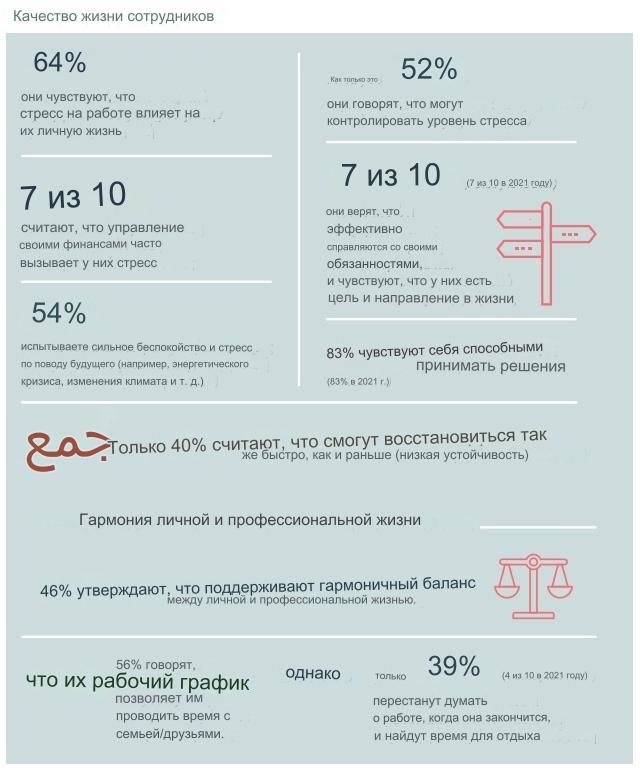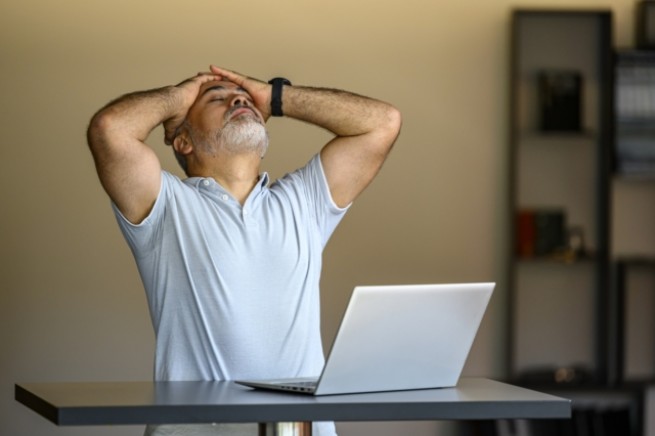The answer to the question of which work model is best for mental health was provided by a study based on data from a survey of workers in Greece, dedicated to World Mental Health Day.
According to a survey conducted in 2023 in collaboration between EY Greece, the EKPA Experimental Psychology Laboratory and Hellas EAP, many workers in Greece face difficult situations in their daily lives.
The study was released on the occasion of World Mental Health Day (October 10), and The findings are not particularly encouraging for the stability of Greek mental health.
A similar survey was conducted in 2021, at the height of the pandemic and restrictive measures, and then the rate of negative feelings and thoughts was much lower than today. The study records significant and increased compared to 2021 signs of depression, anxiety, anger and somatization* among the workers of our country.
Psychosomatic symptoms are physical symptoms or conditions for which no pathological cause can be found, but, on the contrary, their relationship with psychological causes and mental disorders can be identified.
Somatization is the process by which somatic emotional states and psychological problems not otherwise expressed find physical expression. Somatization of anxiety is the most common. Psychosomatic illnesses are caused by the interaction of mental and physical health, mediated by a process called somatization.
Depression, suicide and the work environment
According to the survey, a high level of development of a number of symptoms associated with depression was recorded among workers. Four in 10 workers say they feel melancholy and 41% are pessimistic about the future, up from 35% in 2021. 2% of workers have thought about committing suicide. Unfortunately, according to this particular survey, this percentage has increased by 0.9% since 2021.

Panic attacks and fatigue among workers
Stress-related symptoms are also quite common among employees, with 3 in 4 (75% vs. 68% in 2021) employees reporting feeling nervous or jittery (nervous). 44% (up from 40% in 2021) are feeling overwhelmed and 10% in 2022 (up from 8% in 2021) report panic attacks.
Fixed at a high level manifestation of anger: 75% feel irritated, down from 5% in 2021, with 3 in 10 experiencing angry outbursts they cannot control. In addition, 2 out of 10 report wanting to break something.
The phenomena of somatization, i.e. the expression of psychological or emotional problems in the form of physical symptoms such as headaches, severe stress and panic attacks, are also intense and intensified.
41% of workers report weakness and dizziness (up to 35% in 2021), 19% experience nausea or upset stomach (up to 15% in 2021), 2 in 10 (up to one in 10 in 2021) report shortness of breath and the same proportion reported heart or chest pain.
Symptoms are more common in women
Women show higher levels of anxiety, depression, somatization, anger and loneliness than men. Younger workers have higher rates of anxiety, depression, somatization, loneliness and anger than their older colleagues, but also have lower levels of quality of personal and professional life.
Most workers claim that stress at work affects their personal life, while at the same time they experience great anxiety and stress regarding the future and external factors that will affect their lives, such as the energy crisis, climate change, etc. d.
Hybrid work model is an option to improve staff mental health
Hybrid workers have significantly lower stress, somatization, and anger scores than their in-person counterparts. When it comes to harmony between personal and professional life, only 39% of employees stop thinking about work when it’s over and go into “time to relax” mode.
Low level of joy from work
Unfortunately, the percentage of employees who look satisfied and happy in their work is also low. At the same time, more workers say it is important that their manager is well trained so they can support them in the first step around mental health.
The vast majority of employees say that the manager does not often contact them to find out how they are doing (not just on work issues). Therefore, employees tend to seek help from a mental health professional when they are experiencing increased stress.
In general, the results of the study are as follows: the more positively an employee assesses the work quality of his life, the higher he assesses the quality of his personal life (and vice versa).







More Stories
What to do if attacked by a dog (video)
Greece – a paradise for gourmets
Message from AEK and PAOK fans in defense of Esphigmenou Monastery